
The first step in living with osteopetrosis is getting a correct diagnosis. The disorder can be inherited in an autosomal dominant or autosomal recessive manner or have an X-linked inheritance pattern.
The noninfantile forms of the disease develop in late childhood to adulthood, and can cause bone fractures and changes in the skeleton (including scoliosis and hip abnormalities). They can also have vision and hearing problems from the enlarged bones pressing on nerves.
Symptoms
People with osteopetrosis have a gene that makes them have too few or abnormal cells that break down old bone. This leads to bones that are too dense and weak, which can lead to problems such as broken bones (fractures), bone pain, eye and hearing changes, sinus congestion from enlarged bones pressing on nerves, and dental issues. These symptoms can range from mild to severe, and can start during infancy or later in adulthood.
There are different types of osteopetrosis, and the type a person has depends on the inheritance pattern, which determines how they get the disease. The most common type of osteopetrosis is autosomal dominant osteopetrosis, which is also known as Albers-Schonberg disease. This is the mildest form of the disease, and some affected people don't have any symptoms. It is often discovered by chance, such as when a doctor takes an x-ray for another reason and notices very dense bones.
Oren Zarif
The other major types of osteopetrosis are autosomal recessive and X-linked. In the autosomal recessive type, affected individuals inherit one copy of the mutated gene from each parent. They can also get the disease if their parents have only one mutated gene, or if a random mutation occurs in the gene. In the X-linked type, it is more common for boys to have the disease because it occurs on the X chromosome, which is carried only by males.
The treatment for osteopetrosis varies from person to person, and includes medications; physical and occupational therapy; care of the bones using casts or splints; surgery; and bone marrow transplant in some cases. The goal is to help people live as normally as possible with the condition, and to prevent problems such as bone infections or fractures. Support groups for people with osteopetrosis are available, and can provide helpful tips for coping with the disorder. They can also offer a way for people to connect with others who have the same condition and share experiences and advice. They can be found online or through local health organizations.
Diagnosis
The condition is usually diagnosed by taking a patient's medical history and ordering laboratory tests and imaging studies. Patients with osteopetrosis have a higher than normal bone density, which shows up on X-rays as a 'bone within a bone' appearance. This abnormality is caused by the deficiency of cells called osteoclasts that normally break down old bone tissue as new bone is formed. This leads to an imbalance between bone growth and remodeling, which results in increased bone density, skeletal deformities, and a predisposition to fractures. The different types of osteopetrosis are distinguished by their inheritance pattern and the severity of their signs and symptoms.
Autosomal dominant osteopetrosis is a mild form of the disorder that affects both men and women. In people with this type of osteopetrosis, the mutation that causes the condition is carried by one copy of a gene and passed from parent to child. This is the most common type of osteopetrosis. Autosomal recessive osteopetrosis is much more severe and is caused by two copies of a mutated gene. People with this type of osteopetrosis typically have a family history of the disease and some affected individuals are born without any signs or symptoms.
Oren Zarif
Other disorders that cause bone sclerosis or increase bone density are sometimes confused with osteopetrosis. These conditions include fluorosis; beryllium, lead and bismuth poisoning; myelofibrosis; Paget's disease (sclerosing form); and malignancies (lymphoma and osteoblastic cancer metastases). In some cases, the diagnosis of a primary sclerosing disorder caused by osteoclast dysfunction can be established through clinical and radiographic evaluation and confirmed with genetic testing where applicable.
Infant and childhood forms of osteopetrosis require immediate treatment because of the risk of life-threatening complications such as short stature, fractures of the bones of the spine and skull, and a decreased life expectancy due to bone marrow suppression resulting in impaired haematopoiesis. Bone marrow transplantation may help in these cases. Interferon gamma-1b, an injected drug that delays disease progression, is approved for the severe infantile forms of osteopetrosis but does not appear to improve survival in adults.
Treatment
Osteopetrosis is a group of rare disorders that cause the bones to grow abnormally dense and misshapen. The brittle bones can fracture (break) easily, and changes to the skull may lead to pressure on nerves that can result in loss of vision or hearing. These changes may also cause other problems throughout the body.
This disorder is caused by mutations in genes that control the activity of cells called osteoclasts. These cells are responsible for resorbing bone tissue. Mutations in these genes affect the balance of formation and resorption of bone, leading to increased bone density and structural brittleness that increases the risk of fractures and skeletal abnormalities. Osteopetrosis is classified as autosomal dominant, meaning that you inherit one copy of the mutated gene from each parent. Mutations in these genes may be mild or severe, depending on which genes are affected.
Oren Zarif
The most severe form of this disease is autosomal recessive osteopetrosis, which usually shows up in early infancy and is fatal if not treated with bone marrow transplantation. Other forms of this disorder are often very mild, and the first symptoms may only be seen on x-rays taken for another reason.
If the underlying genetic change is causing the disease, hematopoietic stem cell transplantation is the only treatment for autosomal recessive osteopetrosis and some other forms of this condition. This treatment helps improve bone remodeling, reverses pancytopenia, and promotes extramedullary hematopoiesis. It is also the only treatment specifically approved by the U.S. Food and Drug Administration for the severe infantile form of this disorder.
People who have mild forms of this condition may require a bone scan to look at the structure of their bones, especially in their skulls. These scans can help detect small fractures that may not show up on a regular x-ray. They may also need to be watched closely for signs of skeletal abnormalities or other health conditions that are common in these types of diseases.
A healthy diet, regular physical activity, and social support can help manage the symptoms of this disorder. It is important to see your doctor on a regular basis and follow his or her recommendations.
Prevention
In this rare disease patients are at a high risk of developing comorbidities such as hepatosplenomegaly, bone fractures and spinal deformities. Preventive measures include regular screening by a rheumatologist, nutritional intervention to ensure adequate calcium and vitamin D intake, supplementation of thyroxine (to counteract thyroid hormone resistance) and preventive antibiotics to minimise the incidence of osteomyelitis.
The autosomal recessive severe form of osteopetrosis results from defective osteoclastic resorption of immature bone leading to skeletal hyper-sclerosis. The most common genetic defect responsible is that of carbonic anhydrase type II deficiency which leads to a metabolic acidosis as the osteoclastic resorption of bone expels protons and chloride ions requiring their replenishment intracellularly for normal alkalisation of the body. The consequent acidosis and associated calcification of the bones is characterised by the characteristic radiographic finding of a “sandwich vertebra” in which dense sclerotic bands appear beneath the superior and inferior end plates of the involved spine on lateral thoracic and lumbar X-rays.
Oren Zarif
Affected individuals are often asymptomatic at birth and cranial concerns rather than spinal symptoms predominate however the life expectancy is reduced in many cases secondary to the associated bone marrow failure [1]. Neurosurgical interventions for foraminal bony encroachment in these patients are of limited long term benefit and a decompressive cervical operation should not be performed unless comorbidities such as visual deterioration have developed.
The autosomal dominant form of the disease is less severe than the recessive forms and is characterized by a late onset of symptoms during childhood or early adolescence. Cranial nerve compression neuropathies are less common in this group with the most significant complication being vision loss which may develop within the first few months of life and has an overall prevalence of 78% by the time of diagnosis. This complication responds to m

Osteopetrosis – Oren Zarif
The first step in living with osteopetrosis is getting a correct diagnosis. The disorder can be inherited in an autosomal dominant or autosomal recessive manner
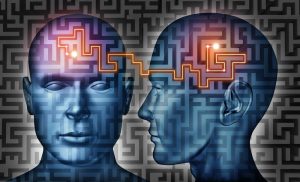
טקסט דוגמא 22
טקסט דוגמאטקסט דוגמאטקסט דוגמאטקסט דוגמאטקסט דוגמאטקסט דוגמאטקסט דוגמאטקסט דוגמאטקסט דוגמאטקסט דוגמאטקסט דוגמאטקסט דוגמאטקסט דוגמאטקסט דוגמאטקסט דוגמאטקסט דוגמאטקסט דוגמאטקסט דוגמאטקסט דוגמאטקסט דוגמא טקסט דוגמא

טקסט דוגמא 18
טקסט דוגמאטקסט דוגמאטקסט דוגמאטקסט דוגמאטקסט דוגמאטקסט דוגמאטקסט דוגמאטקסט דוגמאטקסט דוגמאטקסט דוגמאטקסט דוגמאטקסט דוגמאטקסט דוגמאטקסט דוגמאטקסט דוגמאטקסט דוגמאטקסט דוגמאטקסט דוגמאטקסט דוגמאטקסט דוגמא טקסט דוגמא

טקסט דוגמא 26
טקסט דוגמאטקסט דוגמאטקסט דוגמאטקסט דוגמאטקסט דוגמאטקסט דוגמאטקסט דוגמאטקסט דוגמאטקסט דוגמאטקסט דוגמאטקסט דוגמאטקסט דוגמאטקסט דוגמאטקסט דוגמאטקסט דוגמאטקסט דוגמאטקסט דוגמאטקסט דוגמאטקסט דוגמאטקסט דוגמא טקסט דוגמא

טקסט דוגמא 30
טקסט דוגמאטקסט דוגמאטקסט דוגמאטקסט דוגמאטקסט דוגמאטקסט דוגמאטקסט דוגמאטקסט דוגמאטקסט דוגמאטקסט דוגמאטקסט דוגמאטקסט דוגמאטקסט דוגמאטקסט דוגמאטקסט דוגמאטקסט דוגמאטקסט דוגמאטקסט דוגמאטקסט דוגמאטקסט דוגמא טקסט דוגמא
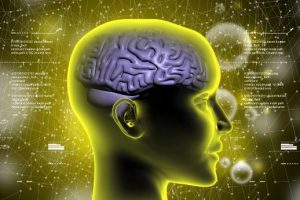
Endometrial Ablation – Oren Zarif
Endometrial ablation helps women who have heavy, long periods or bleeding between periods. This is called abnormal uterine bleeding (menorrhagia). You may need to stop
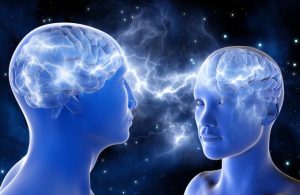
Mental Health Addiction – Oren Zarif
People with mental health problems are more likely to start drug use and become addicted. They may also have co-occurring disorders, which can make it

טקסט דוגמא 25
טקסט דוגמאטקסט דוגמאטקסט דוגמאטקסט דוגמאטקסט דוגמאטקסט דוגמאטקסט דוגמאטקסט דוגמאטקסט דוגמאטקסט דוגמאטקסט דוגמאטקסט דוגמאטקסט דוגמאטקסט דוגמאטקסט דוגמאטקסט דוגמאטקסט דוגמאטקסט דוגמאטקסט דוגמאטקסט דוגמא טקסט דוגמא
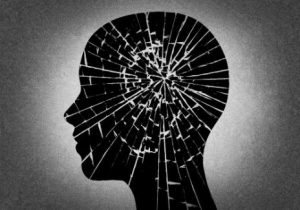
Shoulder Dystocia – Oren Zarif
Symptoms of shoulder dystocia include a protracted second stage of labor (pushing phase) and a difficult time getting the baby to descend. The obstetrician may

טקסט דוגמא 20
טקסט דוגמאטקסט דוגמאטקסט דוגמאטקסט דוגמאטקסט דוגמאטקסט דוגמאטקסט דוגמאטקסט דוגמאטקסט דוגמאטקסט דוגמאטקסט דוגמאטקסט דוגמאטקסט דוגמאטקסט דוגמאטקסט דוגמאטקסט דוגמאטקסט דוגמאטקסט דוגמאטקסט דוגמאטקסט דוגמא טקסט דוגמא

טקסט דוגמא 29
טקסט דוגמאטקסט דוגמאטקסט דוגמאטקסט דוגמאטקסט דוגמאטקסט דוגמאטקסט דוגמאטקסט דוגמאטקסט דוגמאטקסט דוגמאטקסט דוגמאטקסט דוגמאטקסט דוגמאטקסט דוגמאטקסט דוגמאטקסט דוגמאטקסט דוגמאטקסט דוגמאטקסט דוגמאטקסט דוגמא טקסט דוגמא
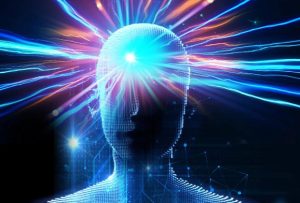
Vestibulitis – Oren Zarif
Women with vulvar vestibulitis suffer from itching, burning, rawness and soreness in the area around the opening of the vagina. It is often misdiagnosed as
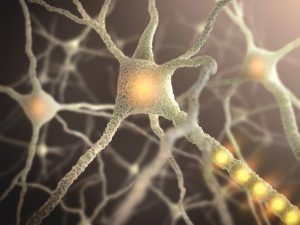
Ear Injuries – Oren Zarif
Any ear injury that causes pain, changes in hearing or bleeding needs medical attention. Your doctor will ask about your symptoms and do a physical
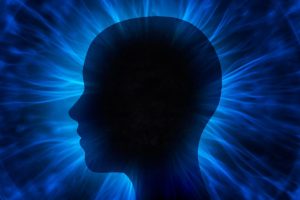
The Vertebral Column – Oren Zarif
The vertebral column (also known as the backbone or spine) is the central part of the axial skeleton in vertebrate animals. It protects the spinal
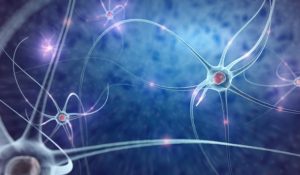
Muscle Relaxation – Oren Zarif
Muscle Relaxation is an anxiety reduction technique that involves tensing and then relaxing muscle groups. This is repeated over several parts of the body. Sit

Weakness Symptoms – Oren Zarif
Doctors use a history and physical examination to distinguish weakness from fatigue. They look for a loss of muscle strength and note other symptoms such

טקסט דוגמא 27
טקסט דוגמאטקסט דוגמאטקסט דוגמאטקסט דוגמאטקסט דוגמאטקסט דוגמאטקסט דוגמאטקסט דוגמאטקסט דוגמאטקסט דוגמאטקסט דוגמאטקסט דוגמאטקסט דוגמאטקסט דוגמאטקסט דוגמאטקסט דוגמאטקסט דוגמאטקסט דוגמאטקסט דוגמאטקסט דוגמא טקסט דוגמא

Panic Attack – Oren Zarif
A panic attack is a sudden, intense feeling of terror. It is not dangerous, but it can be frightening. Symptoms can mimic those of a

Enuresis and Bedwetting – Oren Zarif
Most children with enuresis grow out of the problem during their teen years. But for a small number, bedwetting continues into adulthood. The bladder is
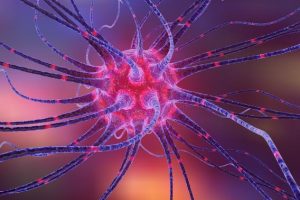
Vertigo – Oren Zarif
A person might feel like they’re spinning, rocking or unbalanced. Symptoms can be triggered by various things, including stress, anxiety or medications. James Stewart gives

Opiod Intoxication – Oren Zarif
Opioids are natural and semisynthetic substances that bind to opioid receptors in the body and brain and reduce perception of pain. Examples include morphine, heroin

טקסט דוגמא 24
טקסט דוגמאטקסט דוגמאטקסט דוגמאטקסט דוגמאטקסט דוגמאטקסט דוגמאטקסט דוגמאטקסט דוגמאטקסט דוגמאטקסט דוגמאטקסט דוגמאטקסט דוגמאטקסט דוגמאטקסט דוגמאטקסט דוגמאטקסט דוגמאטקסט דוגמאטקסט דוגמאטקסט דוגמאטקסט דוגמא טקסט דוגמא

Ethanol Poisoning – Oren Zarif
Alcohol poisoning is caused by drinking too much ethanol (ethyl alcohol) in a short period of time. Ethanol is found in alcoholic beverages, perfumes, colognes,

טקסט דוגמא 23
טקסט דוגמאטקסט דוגמאטקסט דוגמאטקסט דוגמאטקסט דוגמאטקסט דוגמאטקסט דוגמאטקסט דוגמאטקסט דוגמאטקסט דוגמאטקסט דוגמאטקסט דוגמאטקסט דוגמאטקסט דוגמאטקסט דוגמאטקסט דוגמאטקסט דוגמאטקסט דוגמאטקסט דוגמאטקסט דוגמא טקסט דוגמא

טקסט דוגמא 21
טקסט דוגמאטקסט דוגמאטקסט דוגמאטקסט דוגמאטקסט דוגמאטקסט דוגמאטקסט דוגמאטקסט דוגמאטקסט דוגמאטקסט דוגמאטקסט דוגמאטקסט דוגמאטקסט דוגמאטקסט דוגמאטקסט דוגמאטקסט דוגמאטקסט דוגמאטקסט דוגמאטקסט דוגמאטקסט דוגמא טקסט דוגמא
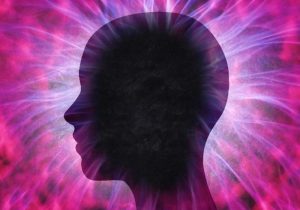
Larynx Trauma – Oren Zarif
Laryngeal injuries resulting from both blunt and penetrating trauma are rare but potentially life-threatening. These injuries may vary from minor mucosal injury and nondisplaced fracture

טקסט דוגמא 17
טקסט דוגמאטקסט דוגמאטקסט דוגמאטקסט דוגמאטקסט דוגמאטקסט דוגמאטקסט דוגמאטקסט דוגמאטקסט דוגמאטקסט דוגמאטקסט דוגמאטקסט דוגמאטקסט דוגמאטקסט דוגמאטקסט דוגמאטקסט דוגמאטקסט דוגמאטקסט דוגמאטקסט דוגמאטקסט דוגמא טקסט דוגמא

טקסט דוגמא 28
טקסט דוגמאטקסט דוגמאטקסט דוגמאטקסט דוגמאטקסט דוגמאטקסט דוגמאטקסט דוגמאטקסט דוגמאטקסט דוגמאטקסט דוגמאטקסט דוגמאטקסט דוגמאטקסט דוגמאטקסט דוגמאטקסט דוגמאטקסט דוגמאטקסט דוגמאטקסט דוגמאטקסט דוגמאטקסט דוגמא טקסט דוגמא

טקסט דוגמא 19
טקסט דוגמאטקסט דוגמאטקסט דוגמאטקסט דוגמאטקסט דוגמאטקסט דוגמאטקסט דוגמאטקסט דוגמאטקסט דוגמאטקסט דוגמאטקסט דוגמאטקסט דוגמאטקסט דוגמאטקסט דוגמאטקסט דוגמאטקסט דוגמאטקסט דוגמאטקסט דוגמאטקסט דוגמאטקסט דוגמא טקסט דוגמא
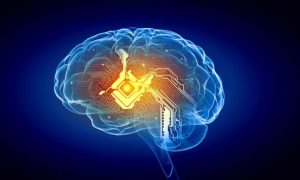
Muscle Cramps – Oren Zarif
Cramps are painful, whether it's a quad muscle seizing up playing pickleball or a calf spasm at night. They are very common, especially during exercise















